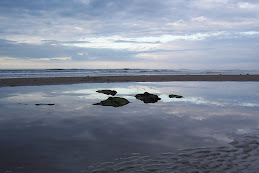Recently, I was struck again by my relative safety as compared to what faces great swathes of my fellow human beings. Unlike many women, I am not scratching around for enough to eat, or walking miles for (supposedly) clean water, or living in a flimsy shelter, or under the constant threat of physical or sexual violence. Unlike many writers around the world, I am not worried that the next poem I create will mean I will end up in prison.
In this country, we have mostly come to see poetry as something safe and fluffy, comforting, perhaps, on ocassion challenging. But dangerous? Yet as I lie in my snug bed, I listen to a Lybian reciting poetry which has landed him in prison and caused him to be tortured. The authorities found these words (which, of course, I cannot understand as they are in his own language) so menacing and intimidating that they had to shut the perpetrator up. Incarcerated, he had no access to paper and pens, so he spent hours committing his poetry to memory, another act of difiance.
Words, these things we often use irreverantly or with little thought or effort, are seen in some parts as if they had the force of grenades and the power to topple regimes.
skip to main |
skip to sidebar

Photos by Mark Vesey
Pathways Through Writing Blocks in the Academic Environment
A new book by Kate Evans exploring creative ways for overcoming blocks to writing especially for those working in the academic environment. Aimed at students with essays, theses and reports to write, academics with articles or books they want to get out there and supervisors supporting anyone who is having a hard time putting words on the paper. See http://www.sensepublishers.com/ & www.amazon.co.uk
Healing Words: six linked one day workshops exploring creative writing
Aimed at writers working in therapeutic environments or with vulnerable groups or health professionals who want to bring writing into their practice. Themes covered: storytelling; poetry; metaphor; embodied writing. Dates: Saturdays in 2013, 9th March, 1st June, 27th July, 21st September, 23rd November and 18th January 2014. Participants can do all six or choose to attend specific ones. Workshops will be held in Scarborough, North Yorkshire. Continuing Professional Development hours will be awarded. Tutor: Kate Evans, writer, UKCP registered counsellor and Lapidus member. For more information, please contact Kate on mail@scpti.co.uk.
All the poetry & writing in this blog, copyright Kate Evans, unless otherwise indicated. All rights reserved. For comments, questions or permissions please use email from my website: http://www.writingourselveswell.co.uk/.

Photos by Mark Vesey
Many of the names used in this blog have been changed and the dates & places of events have been disguised in order to preserve confidentiality.
My Blog & Web List
About Me
- KateHE
- I am a writer and a UKCP registered psychotherapeutic counsellor. I facilitate writing workshops. I am personally and professionally interested in the link between creativity and good mental health. Visit my website: www.writingourselveswell.co.uk
Some recent publications
Poetry
The Peasholm Magic Lantern, Coastival 2009
Haiku & photo exhibition, Nutmeg Cafe, 2010
Words in My Head, Woodend, Coastival 2011
Books
Contribution to Writing Works, a resource hadnbook for therapeutic writing workshops and activities eds Gillie Bolton, Victoria Field & Kate Thompson. Jessica Kingsley Publishers. 2006.
Articles
The Poetry of Therapy, Therapy Today, December 2009 (reprinted Counselling Today NZ)
Outside Life: Edith Sitwell, Poetry News, Winter 2010
Writer's Block: a reflective literature review, The European Journal of Qualitative Research, Summer 2011
The chrysalis and the butterfly: a phenomenological study of one person's writing journey, Journal of Applied Arts & Health 2011
'Finding the unexpected': an account of a writing group for women with chronic pelvic pain (co-authored with Dr Lesley Glover), Journal of Poetry Therapy May 2012
The Peasholm Magic Lantern, Coastival 2009
Haiku & photo exhibition, Nutmeg Cafe, 2010
Words in My Head, Woodend, Coastival 2011
Books
Contribution to Writing Works, a resource hadnbook for therapeutic writing workshops and activities eds Gillie Bolton, Victoria Field & Kate Thompson. Jessica Kingsley Publishers. 2006.
Articles
The Poetry of Therapy, Therapy Today, December 2009 (reprinted Counselling Today NZ)
Outside Life: Edith Sitwell, Poetry News, Winter 2010
Writer's Block: a reflective literature review, The European Journal of Qualitative Research, Summer 2011
The chrysalis and the butterfly: a phenomenological study of one person's writing journey, Journal of Applied Arts & Health 2011
'Finding the unexpected': an account of a writing group for women with chronic pelvic pain (co-authored with Dr Lesley Glover), Journal of Poetry Therapy May 2012
